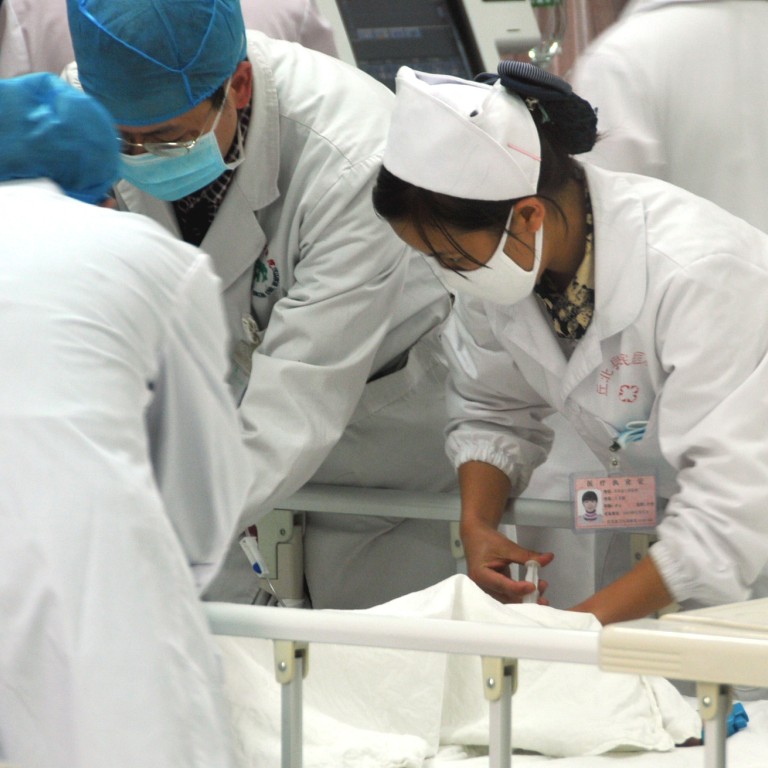
Depressed Shanghai doctor leaps to death allegedly over conflicts with patients
Tragedy highlights mental stresses faced by 'overworked and underpaid' doctors
A depressed doctor leapt eight floors to his death from a Shanghai hospital, sparking a debate on whether it was driven by arguments with his patients – a common occurrence that often turns violent in the mainland.
Zhang Shilin, a urology surgeon working at the Fudan University Shanghai Cancer Centre in Xuhui district, jumped from the building, which is some 20 storeys high, at around 12.30pm on Monday, shortly after visiting another hospital for depression treatment.
His friends and peers have speculated Zhang was under mental stress due to doctor-patient conflicts.
A spokeswoman of Fudan University Shanghai Cancer Centre told the today this was “pure rumour” and that the causes of depression are complicated.
“[Zhang] has been receiving medical treatment for his chronic depression for a long time … but he could not walk away from the disease [standing up],” the hospital wrote on its official microblog account on Sina Weibo.
But Zhang’s university classmate, Song Dianwen, an orthopaedics specialist at Shanghai Changzheng Hospital, revealed in a widely shared blog post that several people close to the late surgeon said Zhang was depressed by his strained relationship with his patients’ relatives.

In response, several doctors, through social media, appealed to the public to show sympathy to the doctors, many of whom are under psychological stress. They are “always expected to perform perfectly”, urology surgeon Lin Hongwei of Beijing Tsinghua University said.
Pan Zhanhe, a Xiamen-based urology doctor, said many medical staff he knew were depressed. “[They] bear long-term burdens, both physical and psychological. [They] are anxious, depressed and lack security,” he wrote in a blog post.
An unnamed doctor listed as working with the Shenzhen Children’s Hospital said: “No surgeon likes to know their patients have failed to recover after operations … but only few people can understand [the doctors]”.
The mainland’s frontline medical staff such as doctors and nurses have increasingly found themselves working in a dangerous profession amid frequent reports of hospital violence, in which angry patients or their relatives attack or publicly shame hospital staff.
Some 70,000 disputes between patients and hospitals were reported last year according to the latest figure by the nation’ Health Ministry.
A Chinese Hospital Association study revealed that the number of medical staff injuries caused by violent incidents at hospitals rose 20 per cent last year. On average, there were 27.3 attacks in every hospital in 2012, up from 20.6 in 2008, largely triggered by dissatisfaction over treatments, misunderstanding, high medical expenses and poor bedside manners by medical personnel.
Last month alone, a doctor in Heilongjiang province was beaten to death with an iron bar by an unsatisfied patient; a doctor in Hebei province was stabbed in the throat by a disgruntled patient; while a nurse was paralysed after being beaten by a Nanjing official who was unhappy with hospital arrangements for his daughter.
Doctors have complained they are overworked and underpaid. With hospitals basing salaries on the number of patient visits, medical tests conducted and medicines sold, doctors sometimes treat up to 100 patients a day, the has reported.

